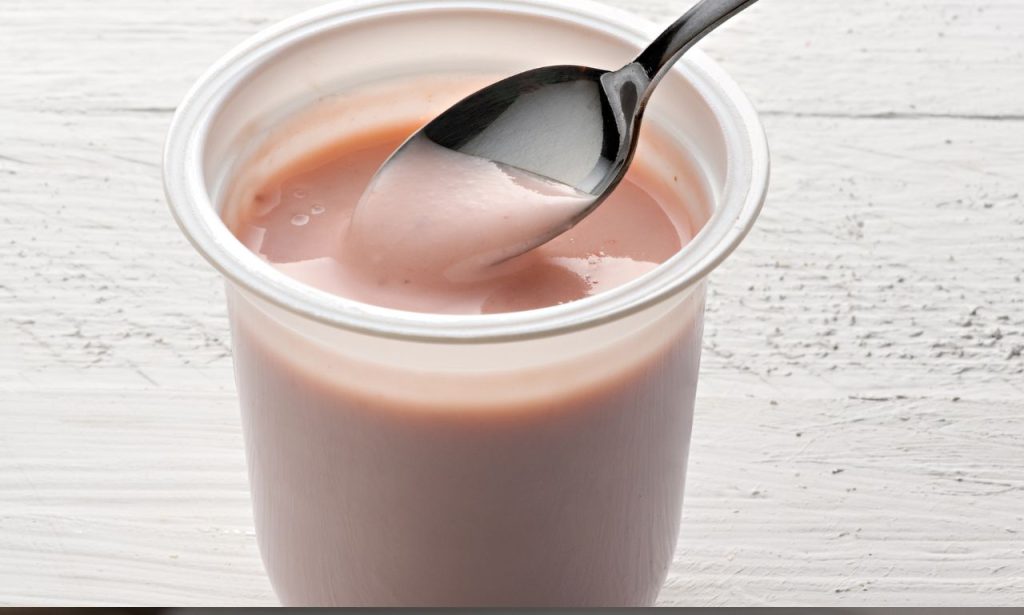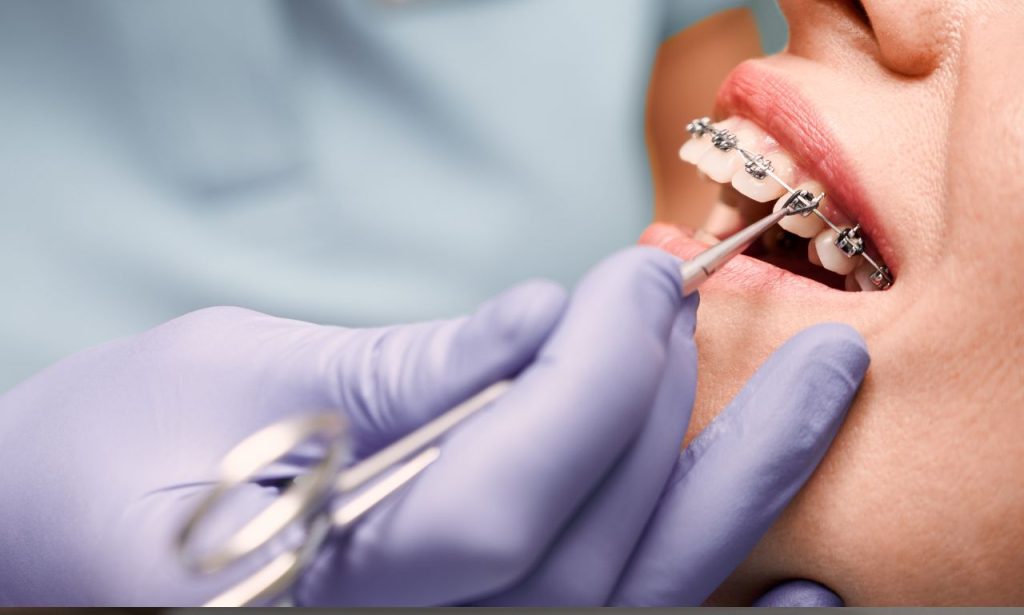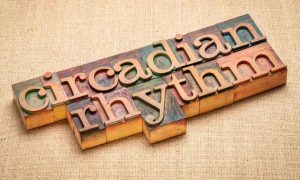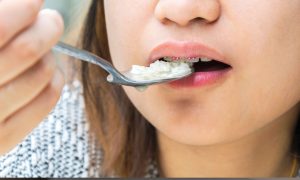You’ve just embarked on a journey towards a straighter, healthier smile. The first week with braces can be an adjustment, especially when it comes to eating. While the idea of navigating meals with this new addition in your mouth might seem daunting, it doesn’t have to be a recipe for discomfort. This comprehensive guide will walk you through what to eat on the first week of braces, ensuring you nourish your body while prioritizing your oral health.
Soft Foods for Initial Comfort
The initial days after getting braces are often accompanied by some tenderness in your teeth and gums. This is completely normal and subsides as your mouth adjusts. During this time, opting for soft foods that require minimal chewing is key. These foods are not only gentle on your teeth and gums but also easy to digest, ensuring you receive adequate nutrition without unnecessary discomfort.
Yogurt

Yogurt, particularly the Greek variety, emerges as a nutritional powerhouse during your first week with braces. Rich in calcium and protein, yogurt strengthens your teeth and promotes gum health – both crucial as your mouth adapts to braces.
- Calcium: This mineral is essential for strong teeth and bones. Braces work by gently shifting your teeth into their desired positions, and calcium plays a vital role in maintaining the integrity of your teeth throughout this process.
- Protein: Protein is crucial for tissue repair and growth. Your gums might experience some minor irritation during the initial days of wearing braces, and protein aids in their healing and overall health.
Beyond its nutritional benefits, yogurt’s smooth and creamy texture makes it incredibly easy to eat, even when your teeth are feeling sensitive.
Tips for Enjoying Yogurt:
- Opt for plain yogurt and add your own sweetness with fruits or a drizzle of honey. Flavored yogurts often contain added sugars that can be detrimental to your oral health, especially with braces.
- Choose Greek yogurt for a higher protein punch. Protein not only aids in tissue repair but also keeps you feeling full and satisfied for longer.
- Incorporate yogurt into smoothies for a refreshing and nutritious treat.
Soups
Soups are a comforting and nourishing option during the first week with braces. They provide essential nutrients and hydration, especially if chewing feels uncomfortable.
- Hydration: Staying hydrated is crucial for overall health, and it’s especially important when you have braces. Soups contribute to your daily fluid intake, keeping your mouth moist and aiding in the healing process.
- Nutrient-Rich: Soups can be packed with vegetables, lean proteins, and healthy fats, providing a balanced and nourishing meal.
Tips for Choosing Soups:
- Opt for broth-based soups over creamy ones. Creamy soups can be heavier and might stick to your braces, making cleaning more challenging.
- Choose soups with soft, well-cooked vegetables and tender meats. Avoid soups with large chunks of hard vegetables or tough meats that require excessive chewing.
- Puree soups for a smoother texture if needed. This can make them even easier to eat and digest.
Sweet Potatoes
Sweet potatoes, when cooked until soft, offer a comforting and nutrient-rich addition to your diet during the first week with braces.
- Vitamin A: Sweet potatoes are abundant in Vitamin A, which is essential for maintaining healthy mucous membranes. These membranes line your mouth and play a crucial role in protecting your gums and cheeks from irritation.
- Fiber: Despite their smooth texture when cooked, sweet potatoes are a good source of fiber. Fiber aids in digestion and helps regulate bowel movements, which can be particularly helpful if your eating habits have changed due to braces.
Tips for Preparing Sweet Potatoes:
- Roast, mash, or puree sweet potatoes for a soft and enjoyable texture.
- Season them with herbs and spices instead of relying on sugary toppings.
- Incorporate sweet potatoes into soups or stews for added flavor and nutrition.
Eggs
Eggs are a versatile and protein-rich food that can be easily incorporated into your diet during the first week with braces.
- Protein: As mentioned earlier, protein is essential for tissue repair and growth, making it particularly beneficial during the initial days of wearing braces.
- Vitamins and Minerals: Eggs are a good source of various vitamins and minerals, including vitamin D, which aids in calcium absorption, further supporting your teeth and bone health.
Tips for Preparing Eggs:
- Scrambled eggs are the easiest to eat when your teeth are sensitive.
- Soft-boiled or poached eggs are also good options.
- Avoid hard-boiled eggs as they require more chewing.
Nutrient-Rich Drinks
Staying adequately hydrated is crucial for overall health, especially when you have braces. Water should always be your go-to beverage, but incorporating nutrient-rich drinks can provide additional calories, vitamins, and minerals.
Smoothies
Smoothies offer a delicious and convenient way to pack in a variety of nutrients. They are particularly beneficial during the first week with braces as they require minimal chewing and can be customized to your liking.
- Fruits and Vegetables: Smoothies allow you to easily incorporate a variety of fruits and vegetables into your diet, providing essential vitamins, minerals, and antioxidants.
- Customization: You can tailor smoothies to your nutritional needs and taste preferences by adding ingredients like yogurt, protein powder, nut butter, or seeds.
Tips for Making Braces-Friendly Smoothies:
- Avoid using hard fruits like apples or pears with the skin on. These can be difficult to blend completely and might get stuck in your braces.
- Use soft fruits like bananas, berries, or mangoes.
- Blend your smoothie thoroughly to ensure a smooth and consistent texture.
Protein Shakes
Protein shakes are a convenient option for boosting your protein intake, especially if you’re finding it challenging to eat enough solid food during the first week with braces.
- Muscle Repair and Growth: Protein is essential for muscle repair and growth, which is particularly important if you’re experiencing any jaw soreness from your braces.
- Satiety: Protein shakes can help you feel fuller for longer, preventing excessive snacking that could potentially damage your braces.
Tips for Choosing Protein Shakes:
- Opt for protein powders that are low in sugar and additives.
- Choose a milk or water base for your shake.
- Add fruits and vegetables for extra nutrients and flavor.
Foods to Avoid
While adapting to a softer diet is key during the first week with braces, understanding which foods to avoid is equally important. Certain foods can damage your braces, prolonging your treatment time or leading to discomfort.
Hard Foods
Hard foods pose a significant risk to your braces. Biting into hard foods can cause brackets to detach from your teeth or wires to bend, requiring an emergency visit to your orthodontist.
Examples of Hard Foods to Avoid:
- Raw carrots
- Apples and pears (unless cooked or cut into very small pieces)
- Hard candies
- Nuts
- Popcorn
- Ice
Crunchy Snacks
Similar to hard foods, crunchy snacks can also wreak havoc on your braces. The force required to bite through these snacks can dislodge brackets or wires, disrupting your treatment progress.
Examples of Crunchy Snacks to Avoid:
- Potato chips
- Pretzels
- Crispy cookies
- Crackers
Sticky Foods
Sticky foods are notorious for adhering to braces, making them difficult to remove and increasing the risk of plaque buildup and tooth decay.
Examples of Sticky Foods to Avoid:
- Chewing gum
- Caramel
- Taffy
- Gummy candies
Transitioning to a Varied Diet
As your mouth adjusts to braces and the initial tenderness subsides, you can gradually reintroduce a wider variety of foods into your diet. This transition should be gradual, allowing you to monitor your comfort level and ensure your braces remain undamaged.
Gradual Introduction
Start by incorporating slightly firmer foods into your diet, one at a time. Pay attention to how your teeth and braces feel after eating these foods. If you experience any discomfort or notice any loosening of your brackets, revert to softer options and consult your orthodontist.
Foods to Gradually Reintroduce:
- Cooked vegetables (cut into small pieces)
- Tender meats (cut into small pieces)
- Soft fruits (cut into small pieces)
- Pasta
- Rice
Keeping Oral Hygiene in Mind
Maintaining excellent oral hygiene becomes even more crucial when you have braces. Food particles can easily get trapped in and around your brackets and wires, providing a breeding ground for bacteria and increasing the risk of plaque buildup, tooth decay, and gum disease.
Oral Hygiene Tips for Braces:
- Brush your teeth thoroughly after every meal and snack. Use a soft-bristled toothbrush and fluoride toothpaste.
- Floss at least once a day. Use a floss threader or water flosser to clean between your teeth and under the wires of your braces.
- Rinse your mouth with an antibacterial mouthwash. This can help reduce bacteria and freshen your breath.
Importance of Following Orthodontist Recommendations

Your orthodontist is your best resource throughout your braces journey. They will provide you with personalized instructions on what to eat on the first week of braces and beyond, as well as specific oral hygiene practices to follow.
Seeking Guidance
Don’t hesitate to contact your orthodontist if you have any questions or concerns about your diet or oral hygiene routine. They are there to support you in achieving a healthy and beautiful smile.
Conclusion
Navigating the first week with braces doesn’t have to be a culinary challenge. By embracing soft foods, staying hydrated, and avoiding foods that could damage your braces, you can ensure a comfortable and nourishing experience. Remember, this is a temporary adjustment period, and the rewards of a straighter, healthier smile are well worth it.
ALSO READ: What Can I Do If Tooth Pain Is Unbearable?
FAQs
Don’t panic! Contact your orthodontist immediately to schedule an appointment for a repair. In the meantime, try to remove any loose pieces of the bracket or wire with a clean pair of tweezers. Avoid eating anything else that could further damage your braces.
Sodas, especially those containing sugar, are best avoided throughout your orthodontic treatment. The sugar in soda can contribute to plaque buildup and tooth decay, while the acidity can erode tooth enamel. If you do choose to drink soda, do so in moderation and rinse your mouth thoroughly with water afterward.
The initial tenderness you experience after getting braces typically lasts for a few days to a week. During this time, stick to soft foods and over-the-counter pain relievers if needed. If the sensitivity persists or worsens, consult your orthodontist.




